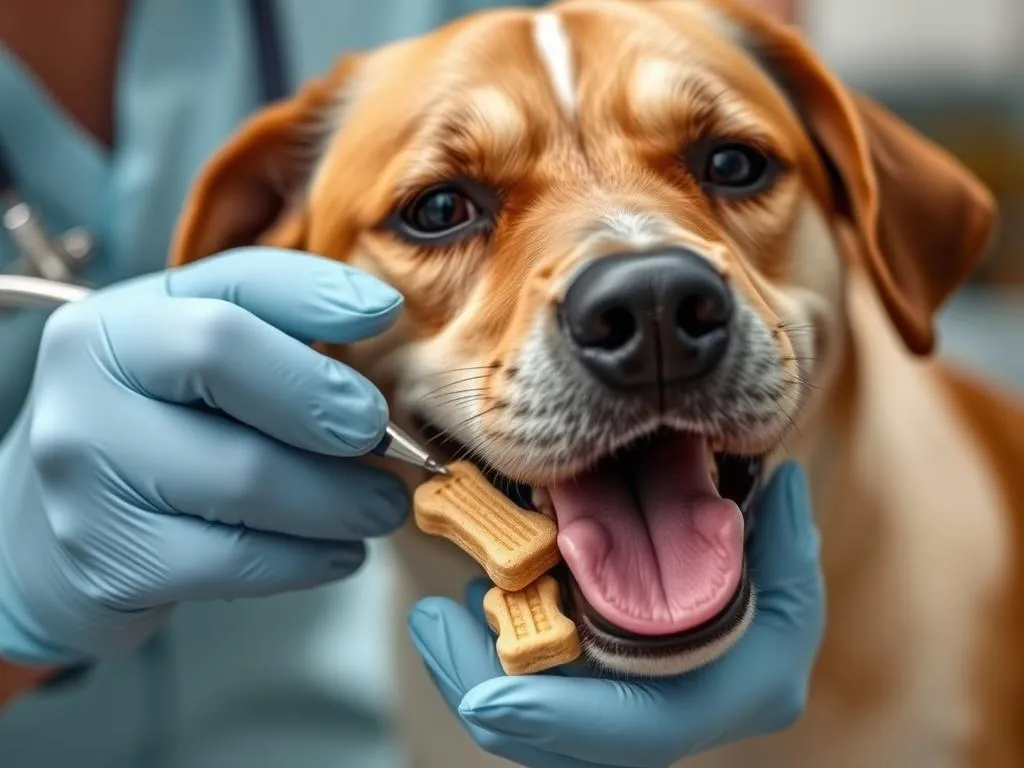
Introduction
Caring for your dog’s health is one of the most important responsibilities of pet ownership. Just like humans, dogs require regular health checkups, proper dental care, and a balanced diet to thrive. Regular checkups can detect potential health issues early on, while dental care is essential for preventing serious dental diseases. Moreover, the right dog treats can play a significant role in maintaining your dog’s overall health, not just as rewards or snacks but also as tools for dental hygiene.
In this article, we will delve into the importance of regular veterinary checkups, the significance of dental health for dogs, and a detailed review of popular dog treats, especially those focused on dental care. By the end, you will have a comprehensive understanding of how to integrate these elements into your dog’s health care routine.
The Importance of Regular Checkups
What is a Checkup?
A vet checkup is a routine examination performed by a veterinarian to assess your dog’s overall health. The primary purpose of these checkups is to identify any potential health issues before they become serious. Depending on a dog’s breed, age, and health history, the frequency of checkups may vary. Generally, puppies and senior dogs require more frequent visits—typically every six months, while healthy adult dogs may only need to visit the vet once a year.
Benefits of Regular Checkups
Regular checkups come with numerous benefits that can significantly improve your dog’s quality of life:
- Early Detection of Health Issues: Many health problems, such as diabetes or kidney disease, can be managed more effectively if detected early.
- Vaccinations and Preventive Care: Checkups are a great opportunity to keep your dog’s vaccinations up to date and discuss preventive treatments like flea and tick control.
- Building a Relationship with Your Veterinarian: Regular visits help establish a rapport with your vet, which is essential for open communication regarding your dog’s health.
What to Expect During a Checkup
When you take your dog for a checkup, certain procedures are typically included:
- Weight Check: A crucial indicator of your dog’s health.
- Heart Rate and Respiratory Rate Monitoring: Essential for assessing cardiovascular health.
- Physical Examination: The vet will check for any abnormalities in your dog’s body condition, coat, and skin.
Before your visit, consider preparing a list of questions to ask your veterinarian. These may include inquiries about diet, exercise, behavior changes, or any specific health concerns you have.
Dental Health for Dogs
Why Dental Health Matters
Dental health is often overlooked but is a vital aspect of your dog’s overall well-being. Poor dental hygiene can lead to various health issues, including periodontal disease, which can affect your dog’s heart, liver, and kidneys. Regular dental care helps prevent:
- Tartar Buildup: This leads to gum disease and bad breath.
- Tooth Loss: A direct result of untreated dental issues.
- Systemic Health Problems: Bacteria from dental disease can enter the bloodstream and affect vital organs.
Signs of Dental Problems in Dogs
Being vigilant about your dog’s dental health is crucial. Look out for these signs:
- Bad Breath: A common indicator of dental issues.
- Gum Inflammation: Red, swollen gums may signal gum disease.
- Difficulty Eating: If your dog hesitates to eat or shows signs of pain while chewing, a dental problem may be present.
Dental Care Practices for Dog Owners
To maintain your dog’s dental health, consider the following practices:
- Brushing Techniques: Use a toothbrush and toothpaste specifically designed for dogs. Aim to brush your dog’s teeth several times a week, if not daily.
- Professional Dental Cleanings: These should be done annually. During these cleanings, the vet will typically use anesthesia to thoroughly clean your dog’s teeth below the gum line.
Dog Dental Treats: Benefits and Recommendations
Incorporating dog dental treats into your dog’s routine can significantly benefit their oral health. Here’s what to look for:
- Texture: Dental treats should be abrasive enough to help reduce plaque and tartar.
- Ingredients: Choose treats made with natural ingredients and without artificial additives.
Review of Popular Dental Dog Treats
Here’s a summary of some popular dental dog treats currently available:
| Brand | Key Ingredients | Effectiveness | Pros | Cons |
|---|---|---|---|---|
| Greenies | Natural grain, vitamins | Effective in reducing plaque | Palatable and easy to chew | Contains grains |
| Virbac C.E.T. | Poultry flavor, enzymes | Strong tartar control | Vet recommended, enzymatic | Higher price point |
| Hill’s T/D | Vegetable fiber | Great for preventing plaque | Veterinary recommended | Limited flavors available |
| Nylabone | Nylon, peanut butter flavor | Chew-resistant | Long-lasting, durable | Not suitable for all dogs |
When selecting dental treats, consider your dog’s size and chewing habits, along with any specific health concerns.
Choosing the Right Dog Treats
The Role of Treats in a Dog’s Diet
Treats can add valuable nutrients to your dog’s diet, but they should not replace balanced meals. Keep in mind that treats should be given in moderation to prevent obesity and maintain a healthy diet.
Types of Dog Treats
Understanding the different types of treats available can help you make better choices:
- Soft Treats vs. Hard Treats: Soft treats are great for training, while hard treats can aid in dental health.
- Training Treats vs. Regular Treats: Training treats are typically smaller and lower in calories.
- Health-Focused Treats: Look for options like low-calorie or grain-free treats, especially if your dog has specific dietary needs.
Reviewing Popular Dog Treats
Here’s a brief overview of some top-rated dog treats across various categories:
- Training Treats:
- Zuke’s Mini Naturals: Low-calorie, soft, and available in various flavors.
-
Blue Buffalo Wilderness Treats: Grain-free and high in protein.
-
Dental Treats:
- Virbac C.E.T. Enzymatic Oral Hygiene Chews: Highly recommended for dental care.
-
Whimzees: Natural ingredients with a unique shape for effective cleaning.
-
General Treats:
- Merrick Grain-Free Treats: High-quality, natural ingredients with protein-rich recipes.
- Wellness Soft Puppy Bites: Ideal for young dogs, providing nutrition and training support.
Each type of treat has its own advantages and potential drawbacks, so understanding these can help you choose the best options for your dog.
Integrating Health Care and Treats into Daily Routine
Creating a Dog Health Care Schedule
Establishing a consistent health care schedule is crucial for your dog’s well-being. Regular checkups and dental care should be a part of your routine, ensuring that your dog receives the necessary attention to maintain health.
Treats as Rewards for Health Management
Using treats strategically can encourage good behavior during vet visits or while performing dental care routines. For instance, reward your dog with a dental treat after a successful tooth brushing session or a visit to the vet.
Conclusion
In summary, maintaining your dog’s health is a multifaceted responsibility that includes regular checkups, diligent dental care, and the thoughtful selection of treats. By prioritizing these aspects, you can significantly enhance your dog’s quality of life and longevity. Remember that the right checkups, consistent dental hygiene, and appropriate dog treats not only promote good health but also strengthen your bond with your furry friend.
Regular veterinary visits and thoughtful health care practices are essential components of responsible pet ownership. Make sure to integrate these elements into your dog’s daily routine to foster a happy and healthy life.
FAQs
How often should my dog have a checkup?
Most healthy adult dogs should visit the vet at least once a year, while puppies and senior dogs may require more frequent visits.
What are the signs that my dog may need dental care?
Look for signs such as bad breath, gum inflammation, and difficulty eating. If you notice any of these symptoms, it’s best to consult your veterinarian.
What should I consider when choosing treats for my dog?
Consider your dog’s size, health conditions, dietary restrictions, and preferences. Always opt for treats that offer nutritional benefits and are appropriate for your dog’s specific needs.









